Funding application for 2024 – 2025 are now open Apply Now
Member Portal
Not a member? Join us here
Final submissions can be found below
24 November 2021
The government has been consulting on a discussion document for a plan to transition to a low emissions and climate resistant future.
The Packaging Forum sought member feedback on its draft submissions.
Final submissions can be found here.
General consensus on the principles and feedback have given us a direction for the next steps of a roadmap to product stewardship.
05 November 2021
In June 2021, our Compostable Packaging Technical Advisory Group (CTAG) undertook a “Use Case” consultation with stakeholders connected to compostable packaging.
The aim of the use-case was to gain consensus on which material and application combinations should or should not be allowed into a product stewardship scheme for compostable packaging.
These were tied to five overarching key principles:
60 submissions were received. They showed strong support for the five key principles with work suggested to refine the principles.
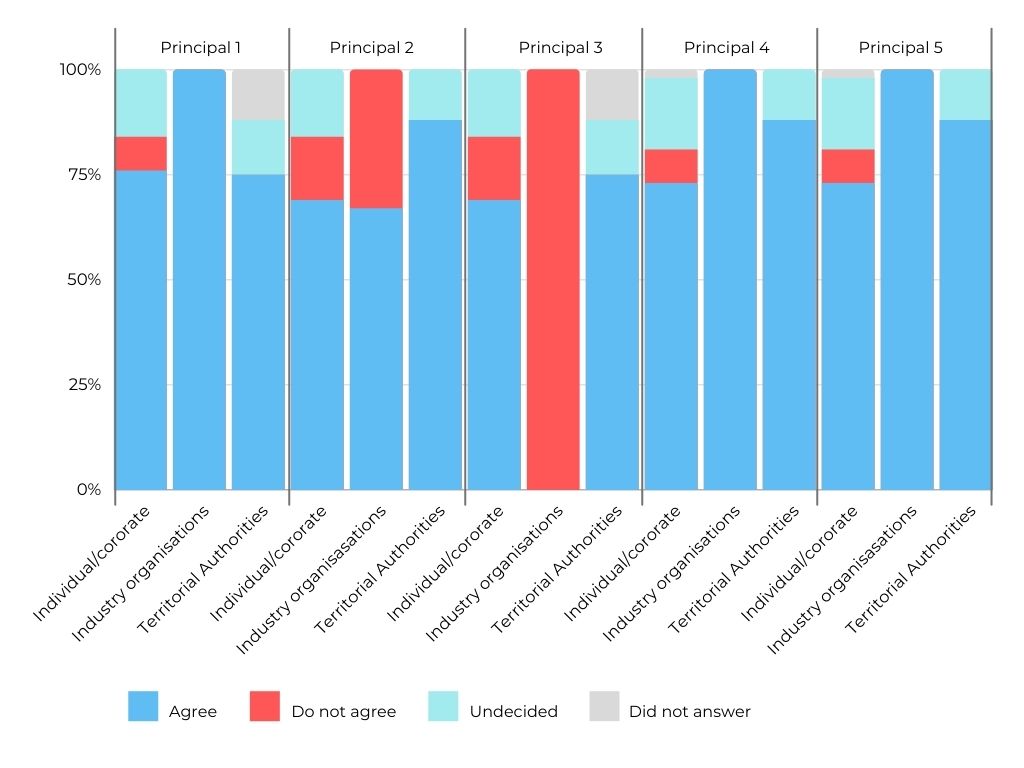
The consultation suggested a range of application and material-type combinations, with submitters suggesting further definition of the principles taking precedence over specifying application/material combinations.
We also asked stakeholders about their support for such an agreed use-case and the prescribed application/material type combinations. Support for the use-case concept was high, as well as strong support for ingredients labelling to a managing entity.
Support for items being allowed in the system if they did not meet the use-case criteria but had a potential second-life as a caddy liner, was not as highly supported.
The CTAG will now progress working to define further the key principles, as an alternative to prescribing application/material type combinations.
This will form part of the “Roadmap to product stewardship for compostable packaging” document, currently under construction.
Read the background to the use case consultation
View the webinar (members only, create an account if you haven’t already)
Webinar for members and stakeholders
Date: 27 August 2021
Time: 2:00pm
The Packaging Forum is a leader in improving packaging sustainability, including such initiatives as our two voluntary product stewardship schemes.
In this webinar, find out all about the schemes from the scheme managers Lyn Mayes and Dominic Salmon. Why they exist, how they work, what they’ve achieved and what the future might hold.
The Packaging Forum is working with other key stakeholders (including composters) on resolving the issues surrounding compostable packaging. This consultation is a critical part of our collaborative work programme to progress solutions for this packaging type.
Published 3 June 2021
Consultation closes 30 June 2021
Compostable packaging has significant value in the packaging system in specific applications where it can bring nutrients to composters for composting, thus diverting organic waste from landfill. Globally, diverting wasted food from landfill is a priority. In New Zealand (NZ), our Climate Change Commission recently declared organic recycling a top priority for reducing carbon emissions in the waste industry, alongside capturing more methane from landfills.
“Compostable packaging” incorporates a wide range of material types used in a variety of applications. However, some applications are not globally considered as best practice for the generally accepted “use case” for compostable packaging.
In this consultation document we aim to discuss:
Consultation closing date: 30 June
Download the consultation document
How to make a submission
Simple submissions with answers less than 50 words per question may be submitted through our online survey.
For more detailed submissions, please email your submission, preferably in a word document.
Emailed submissions will need to include the following information:
Email your detailed submission
Next steps
Following the closing of the consultation, we will be analysing the results and publishing a summary document which will include recommendations.
We are pleased to let you know that fees for The Packaging Forum remain the same for the financial year beginnging 1 April 2021, and will be invoiced in early April.
26 February 2021
As in the previous year, Forum membership is a prerequisite to stewarding your packaging through our product stewardship schemes.
Your fee level is determined by the volume of packaging you sell in the New Zealand market, the range of your packaging types and complexity of materials.
Some of the main benefits of membership are:
Your fees also cover governance, administration and Packaging Forum marketing, communications, and member engagement.
Our work programme is based around Pledge 2025, working towards all packaging being reusable, recyclable or compostable by 2025.
Our technical advisory groups continue their work towards overcoming challenges in packaging sustainability.
Represent members and work with other stakeholders on the design of a regulated product stewardship scheme for single-use plastic packaging, as now required by priority product regulation under the WMA 2008.
Next steps in developing an EPR model for container glass as an alternative to a CRS. It will aim to deliver better outcomes than a CRS with lower costs for consumers and industry, and less risk.
Participate in consultations, maintain relationships and have regular meetings with MfE officials and elected government representatives to communicate our members’ on policies pertaining to packaging sustainability. The following will impact the packaging industry.
Our Glass Forum members proudly contribute to steward their materials towards a glass recovery target of more than 80%, notwithstanding development of a proposed regulated scheme.
Our Soft Plastic Recycling Scheme continues to grow in membership, allowing the scheme to expand its capacity and geographical reach.
Read about the highlights of our work in 20220
15 December 2020
Submissions have been made on behalf of members regarding the Government’s proposed plastic phase out proposals.
7 December 2020
The Packaging Forum, and its Soft Plastic Recycling scheme, have both made submissions largely in favour of the intent behind the Government’s proposed phase-out of hard to recycle plastics and some single-use plastic items.
However both are concerned about the phase out overlapping work being done on product stewardship, as required by this year’s declaration of all single-use plastic packaging as a priority product. There is also concern expressed about whether the timeframes are achievable. Both submissions support the government’s acknowledgement that some use-cases will require exemptions and want the process around exemptions to be very clear.
Public engagement
In a bid to engage the public, the consultation document was condensed down from 74 pages to an eight-page summary with an accompanying video. People were invited to submit by completing a short survey on the Citizen Space platform.
Ministry for the Environment Deputy Secretary Sam Buckle says more than 5,000 submissions had been received by 1 December, with the consultation closing on 4 December.
Businesses and industry organisations like The Packaging Forum were encouraged to make more detailed submissions based on the longer consultation document, which contained more background and nuance.
The Packaging Forum and Soft Plastic Recycling Scheme responses were formulated by consulting with members via a survey, online meetings and member meetings.
While the Forum’s membership is largely supportive of the proposals, it cautions against the creation of unintended negative consequences and advises a holistic approach be adopted:
The Forum also raised concerns around five issues:
How will proposed beverage packaging regulation impact your business?
Proposed Container Return Scheme – is Extended Producer Responsibility a better way?
Find out at our webinar
11am 12 November 2020
We all want better environmental outcomes for packaging. With government regulation of beverage containers now highly likely, we unpack the potential impact. Find out the costs, benefits and risks of two different stewardship models for glass, and how an EPR approach can work for other materials.
Open to members of The Packaging Forum, its schemes, and invited guests.
Para Kore and WasteMINZ have consulted with speakers of te reo Māori from local iwi, community groups, councils, universities and government departments to arrive at some agreed-on translations and some alternatives. As regional variations are still possible, WasteMINZ suggests consulting locally where possible for those intending to create signage or material. For the full resource kit, including recycling symbols, visit the WasteMINZ website.
Below are a few te reo Māori kupu that relate to recycling and packaging. For the full list, including other types of waste, see the WasteMinz website.
Bags & Wrap – Pēke, Tākai
Bottles & Jars – Pātara, Ipu Karaehe (glass containers)
Cans – Kēne
Cardboard – Kāri Mārō
Clear – Kōataata
Containers – Ipu
Drink – Inu
Food Scraps – Para Kai
Food Scraps & Compostable Packaging – Para Kai, Tākai Pōpopo
Furniture – Taputapu whare
Garden Cuttings – Tapahanga Māra, Tapahitanga Māra
Glass – Karaehe Karāhe, Kōata
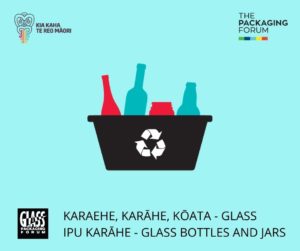
Landfill – Ruapara
Milk Bottles – Pātara Miraka
Paper – Pepa
Plastic – Kirihou
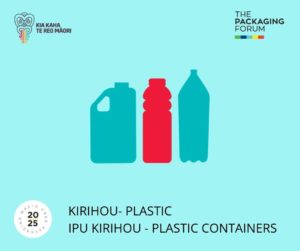
Polystyrene – Kirihou Kōmāmā
Recycling – Hangarua, Hakarua is Ngāi Tahu dialect for Hangarua
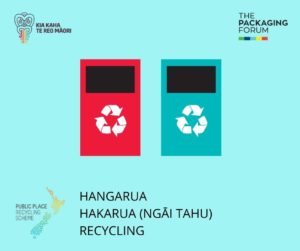
Reuse – Whakamahia Anō
Rubbish – Para, Rāpihi
Shopping Bags – Pēke Hokohoko
Soft Plastic – Kirihou Ngohengohe
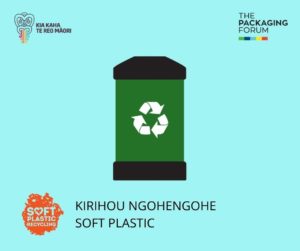
Please join us to discuss this important topic
11am – 12 noon
Mon 28 September
Lyn Mayes, Scheme Manager of our Soft Plastics Recycling Scheme will talk about recycling coverage and recyclability thresholds.
Dana Paterson from the Ministry for the Environment will provide an overview of the regulatory framework and a 101 on what being priority product means.